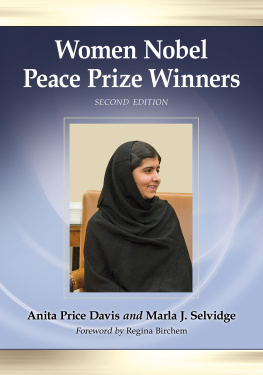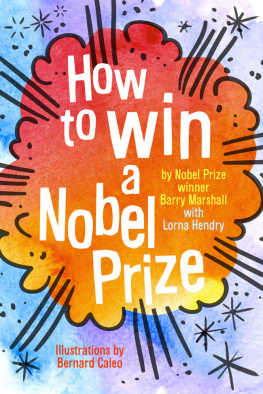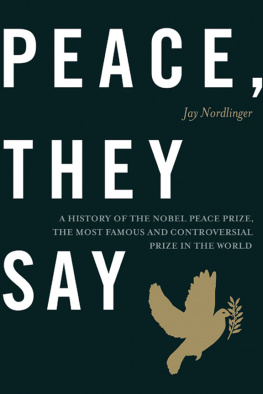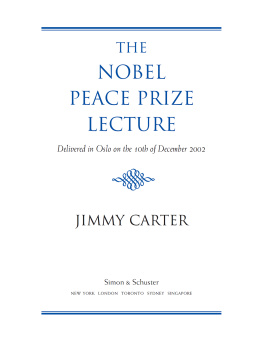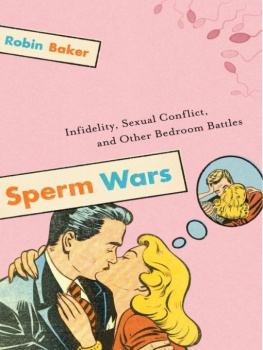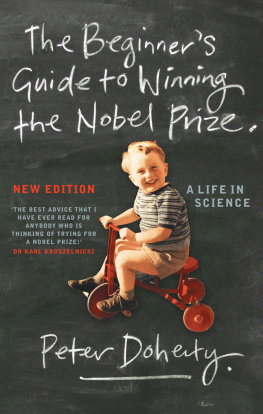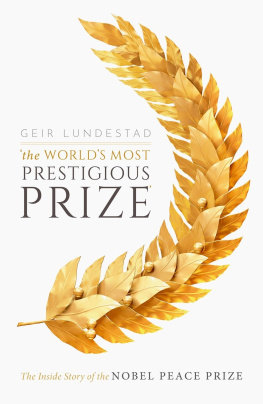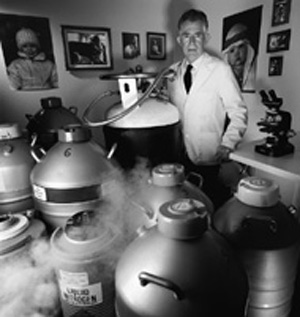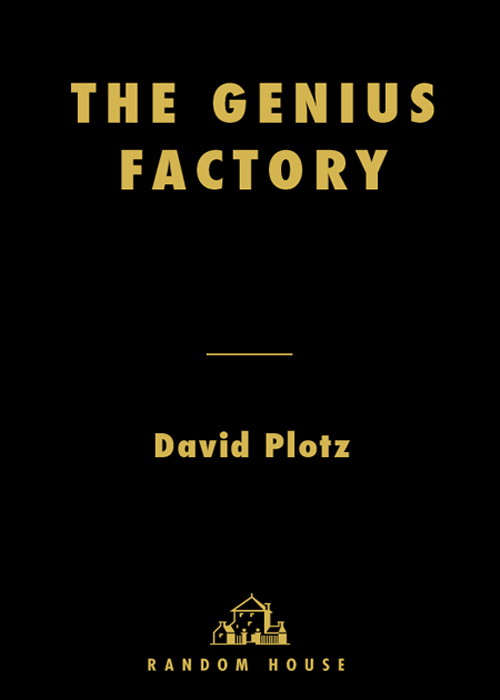
THE
GENIUS
FACTORY
THE CURIOUS HISTORY OF THE
NOBEL PRIZE SPERM BANK
DAVID PLOTZ
RANDOM HOUSE
NEW YORK
CONTENTS
FOR HANNA
AUTHORS NOTE
M any of the names in this book are pseudonyms. I have changed the names of all the sperm donors except William Shockley, who publicly (and proudly) admitted his contribution to the Nobel bank. I have changed the names of all the Nobel sperm bank children (as well as those of their parents) except two, Victoria Kowalski and Doron Blake. Their names have been public for more than twenty years. Victoria Kowalski was the first Nobel sperm bank baby, and her parents sold the story of her birth to the National Enquirer. Doron Blake was the second child. He and his mother, Afton, have been giving interviews since he was two weeks old. I have also changed identifying details about some donors and children, notably their hometowns and professions.
PROLOGUE
FEBRUARY 2001
T hat moment, the moment he learned the truth, Tom Legare thought: This is when my old life stops and I have to start over. I am a new me. I have a new future.
It happened in February 2001. Tom was fifteen years old. He was spending a long weekend in Springfield, Illinois, with his mom and his younger sister. His dad, Alvin, was on the road. He was a salesman, always traveling. Even if Alvin hadnt been working, he wouldnt have come with them. He didnt go on family vacations. That was the kind of father Tom felt he had always had: indifferent, gloomy, detached. He still lived at homeif thats what you call sleeping in the house a few days a monthbut he had left his wife and kids. Or maybe they had left him.
Tom and his mother, Mary Legare, were eating breakfast in the hotel restaurant, at a table by the window. They were waiting for his sister, Jessica, who was upstairs sleeping. Tom and Mary were spoiling for a fight. What teenager and his mom arent?
Mary said, Thomas, I need to talk to you.
Only she called him Thomas.
Thomas, youre at the point where you have to make decisions about what youre going to do with your life. She paused. And, Thomas, I dont like the direction youre heading in.
He said nothing and scowled at her.
Im proud youre going to graduate a year early from high school. But I heard you talking about going to pro wrestling school, whatever that is. Thomas, that is not going to happen.
Tom sighed. It was 8 A.M. He was on vacation. He wanted to finish his Pop-Tarts. He wanted to play video games in the hotel game room. Besides, the wrestling school plan was a joke, something to talk smack about with his friends when they were practicing moves in his backyard ring. But Tom didnt say that. He didnt want to give his mom the slightest satisfaction. He knew that his silence would just annoy her more.
She kept going. You cant go to wrestling school. You cant waste your life on that.
Thomas, you can do better than that. I know you can do better.
When he heard her say that, Tom wondered if his moms secret was going to come out. This wasnt the first time she had dropped that same hint, with the same emphatic certainty in that word know: I know you can do better. From the way she said it, he knew, just knew, she was keeping something from him.
Irritated by her hinting, Tom broke his silence.
Why do you know I can do better, Mom? Why? If there is something you want to tell me, just tell me.
She thought for a moment, then asked, Thomas, have you ever heard of the Repository for Germinal Choice?
No, he said.
You know how I always told you that you didnt have to be like your dad? I dont want you to look at your father and say, This is what I have to look forward to. You need to know that you have better potential than your dad, because you dont have your dads genes.
Suddenly Tom wanted her to stop. Somehow he knew that if she kept talking his life would never be the same, that his childhood would be over. But he couldnt think of anything to say, and she continued.
When we were first married, we wanted a baby and I couldnt get pregnant. We went to a doctor and he said that because of a Vietnam injury your dad couldnt have kids. Then the doctor told us about an amazing sperm bank in Californiathe Repository for Germinal Choice. All the donors were Nobel Prize winners. I thought that was really special.
And thats where you come from, Thomas. Your dad was a Nobel Prize winner.
Tom didnt want his mom to think she had won the wrestling school argument, so he snapped, This doesnt change a damn thing. But he knew he was lying. He knew it changed everything. Tom turned it over in his head: a sperm bank. A Nobel Prize sperm bank. Tom felt surprised and not at all surprised. It explained everything, he thought: Thats why me and Dad dont look alike. Thats why we dont get along. Thats why Dad treats me that way, keeps me at a distance.
Do you know who mywhat do I call him?my real dad is? Tom asked.
They didnt tell us his name, just a code name. I know he was a brilliant scientist.
Is Jessica my sister?
Yes, but she comes from a different donor, so shes your half sister. She doesnt know anything about this yet. Shes not ready to know, so please dont tell her. Promise you wont tell her.
One last question: Can I find my real dad?
No, you cant. I have a sheet of paper somewhere in the house about him. Thats all I have. The sperm bank is closed, so you wont be able to find his name or what he does or who he is. Im sorry.
Tom left the restaurant and wandered off to check his head. The next three days vanished for him. Even today he cant remember what he did or what he thought. When they returned home from vacation, to their Kansas City suburb, Tom stopped talking to his mother. He shared his new secret with his three best friends; he trusted them because they werent family.
After a few more days, he started to feel better. It was pretty funny, he thought: One day youre a long-haired, fifteen-year-old slacker pulling Bs at a mediocre high school, dreaming of rapping and wrestling. The next day, youre Superkid. Every boy fantasizes at some point that his parents arent his real parents, that his real dad is a king or a billionaire or a movie star. Hey, Tom said to himself, I really do have a secret dad, and he really is a Nobel Prize winner!
Tom was an optimist by nature, and he told himself that only good things could come of it. His dad had wasted his life, and his mom had had to work her butt off for all that she had accomplished. But maybe it will be different for me, he thought. Now I have potential. I have genius genes.
Tom started drinking less, and stopped smoking pot. His grades ticked up. He did his homework, for a change. He was happier.
He felt oddly relieved. Over and over, he would say to himself: Im not related to Dad. Im not related to Dad, thank God! But he didnt tell his dad he knew the secret. Why bother? It wouldnt change anything. It certainly wouldnt make them closer.
It was the other dad that Tom thought about. Tom puzzled over what to call him, even what to call him in his own head. At first, Tom tried my real dad, but that felt wrong. My donortoo clinical. Biological fathertoo cumbersome. My other dadthat sounded as if there were some complicated family dispute.
Next page

